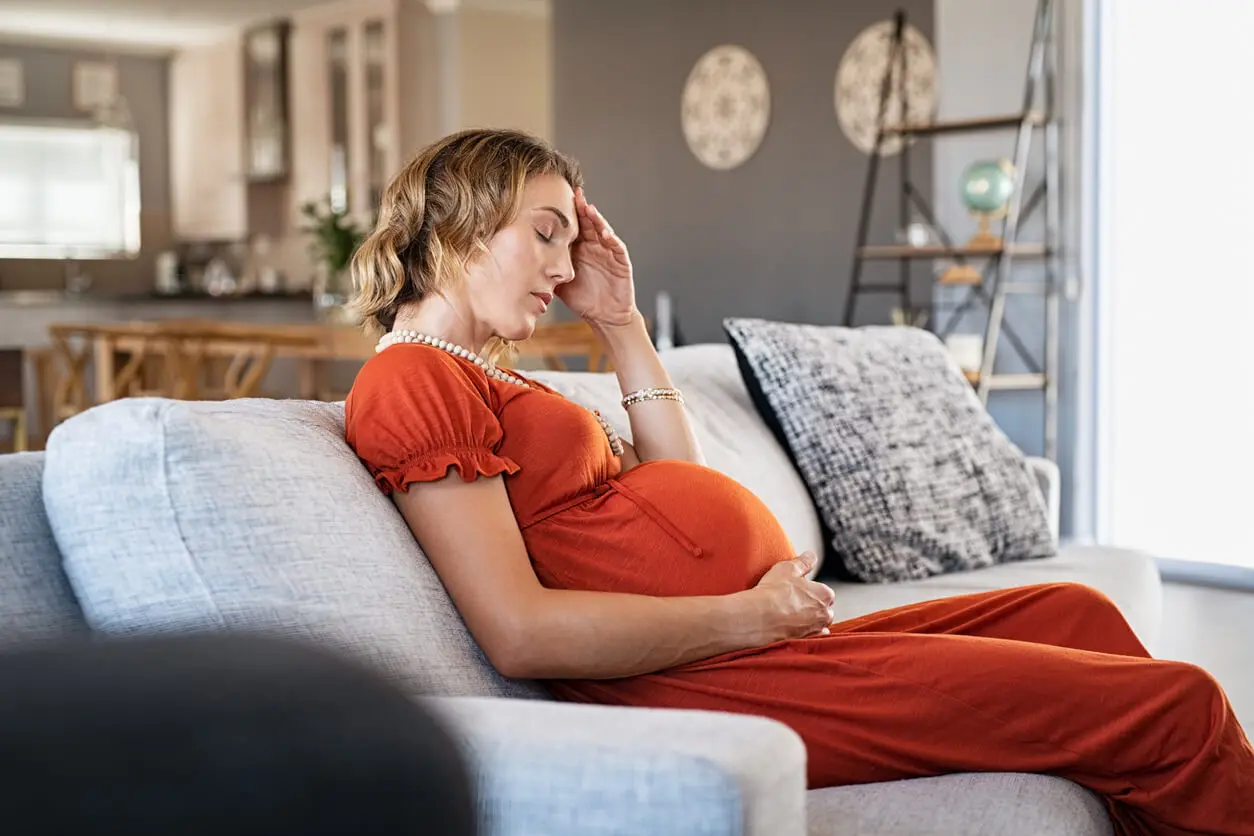Possible Psychological and Emotional Changes in Pregnancy


Reviewed and approved by the psychologist Elena Sanz
Expecting a baby is a wonderful experience. Changes will come that will completely transform your way of life. But, before the pregnancy comes to term, it’s essential to be aware of the possible psychological and emotional changes in pregnancy that many mothers go through.
Worries, fears, and anxieties can dampen the happiness a bit.
Throughout the process, it’s important for the partner and family to support the mother so that she can properly manage the emotional and psychological changes. The help of a mental health professional can be positive.
The culprit is hormonal imbalance
The Royal College of Midwives explains that high levels of estrogen and progesterone trigger hormonal imbalances. This can alter the mood, and cause the mother to feel angry or sad for no apparent reason.
Despite being so uncomfortable, the accentuation of the signs during the third trimester is normal. The emotional and psychological changes are due to a series of transformations in the body that are inevitable. However, it’s also true that other factors will also influence the mother’s well-being.
Psychological and emotional changes in pregnancy
Although each woman may have different symptoms, it’s common to experience some of the emotional and psychological changes that we’ll now discuss. We have organized them by trimester, since the hormonal imbalance isn’t the same at the beginning of the pregnancy as when it’s almost full term.

Read more: Feelings of Rejection Towards Your Partner During Pregnancy
First trimester: the fears
The first trimester is a decisive time. The American College of Obstetrics and Gynecology states that early pregnancy loss is common and is recorded in 10% of confirmed pregnancies. This possibility can produce many fears in the mother.
In this trimester, important tests are performed to detect if the baby has any genetic disease or alterations that could give rise to a syndrome. This is one more reason for concern.
Second trimester: changes in the body
In the second trimester, the belly begins to show, and the body changes. Hips widen, weight gain is normal, and tiredness increases.
Although this trimester is fairly stable, because the nausea has already disappeared, it’s possible to have a certain love-hate relationship with one’s own body.
The mother may not feel comfortable with her new body shape, and she may be uncomfortable having sex or worry about stretch marks. All this will affect their mood.

Third trimester: ambivalence predominates
The third trimester sees the biggest emotional changes of the entire pregnancy. The mother feels an ambivalence in which the joy for the arrival of childbirth is mixed with the fear of it (especially in first-time mothers). Tiredness, fluid retention, and insomnia can also significantly affect mood.
In addition, anxiety can be triggered by worrying about everything that will be needed when she’s in the hospital or when her waters will break. It’s normal to have fears at this point and they can be mixed with excitement. Asking for help never hurts.
Find out more: 6 Positions to Get Pregnant
Psychological therapy during pregnancy
It can be important to see a psychologist during pregnancy to be able to enjoy this experience as much as possible without the psychological and emotional changes in pregnancy overwhelming the mother. In addition to all the decisions you make, one of them could be to see a psychologist.
However, there’s nothing wrong with choosing a therapist who specializes in psychological and emotional changes in pregnancy. You have to be prepared for the transformations that will come in order make your relationship strong and solid.
From start to finish, pregnancy can be magical. Some women have a better time (with very few symptoms) than others. The feelings on seeing your baby come into the world, hold your hand and cling to you for protection is inexplicable. It’s an experience that makes all those fears and worries flee away.
All cited sources were thoroughly reviewed by our team to ensure their quality, reliability, currency, and validity. The bibliography of this article was considered reliable and of academic or scientific accuracy.
- Gavilán-Rodríguez, L., & García-Gavilán, E. A. (2019). Embarazo, parto y puerperio sin la matrona de atención primaria. Relato biográfico de una madre. Archivos de la Memoria.
- Morales, D. M., Bullones, M. A., Monge, F. J. C., Abellán, I. C., Moure, M. A. M., & Puente, C. P. (2008). Influencia de los factores psicológicos en el embarazo, parto y puerperio. Un estudio longitudinal. NURE investigación: Revista Científica de enfermería, (37), 5.
- Ramírez, D. L. C., Acosta, M. E. H., Figueroa, R. I. A., Estrada, I. H., & Pérez, J. A. F. (2019). Prevalencia de obesidad y ganancia de peso en mujeres embarazadas. Atención Familiar, 26(2), 43-47.
- López, M. E. G., & Calva, E. A. (2007). Alteraciones psicológicas en la mujer con embarazo de alto riesgo. Psicología y Salud, 17(1), 53-61.
- Ruiz Chamorro, T. (2017). Impacto psicológico en la mujer durante el embarazo, parto y puerperio. Una revisión de la literatura (Bachelor’s thesis).
This text is provided for informational purposes only and does not replace consultation with a professional. If in doubt, consult your specialist.








